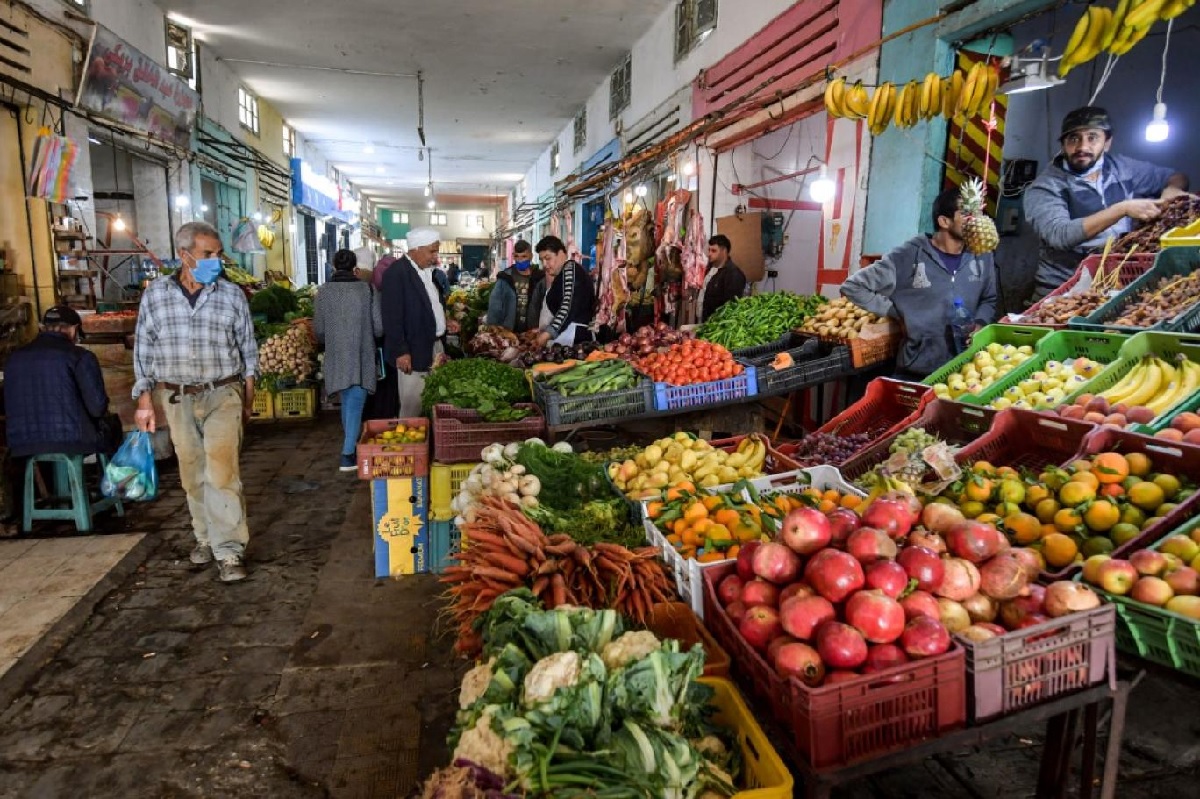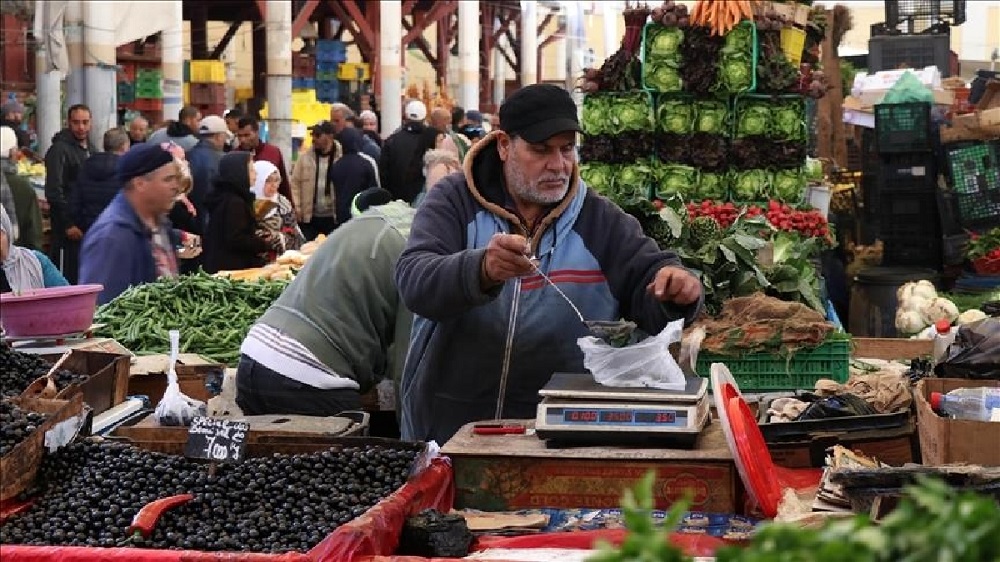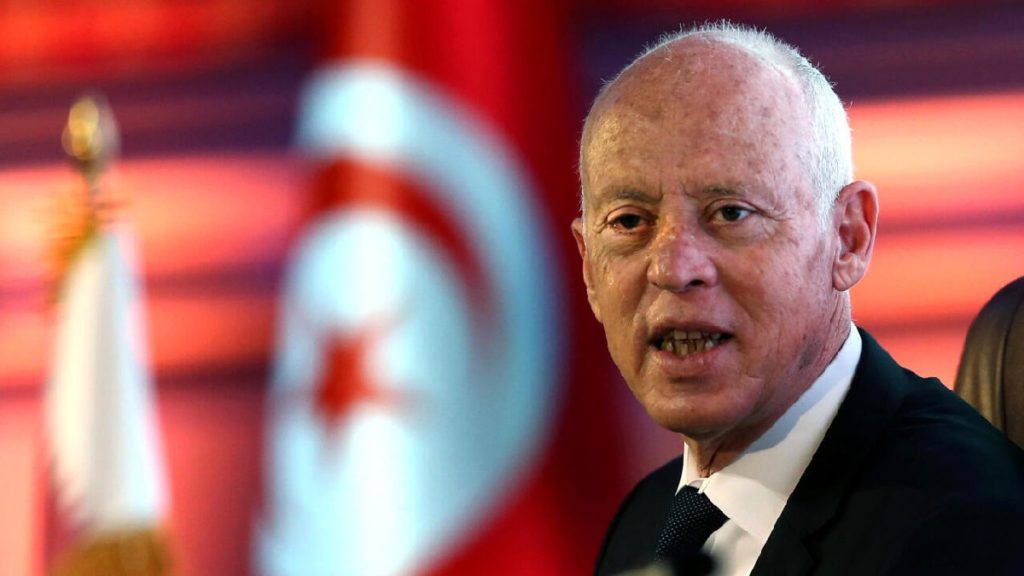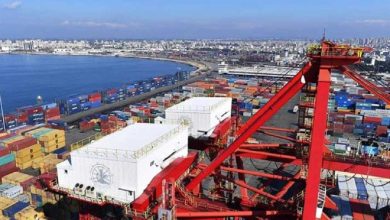The Rising Cost of Living in Tunisia: What’s Behind It?
Economic challenges, high inflation, and policy missteps are making daily life increasingly difficult for Tunisians.

Watan–Tunisia has appointed three prime ministers since President Kais Saied announced exceptional measures on July 25, 2021, as part of an effort to improve the economic and social situation. However, these changes have not yielded tangible results due to the lack of policies addressing the structural issues facing the country, according to observers.
Although the current government led by Kamel Medouri considers 2025 to be a pivotal year for achieving economic, financial, and social stability and creating a development dynamic that restores confidence in the economy’s ability to recover, economic experts believe that recovery is still far off under the current policies.
The political rhetoric of the authorities focuses on strengthening the state’s social role and relying on self-sufficiency without resorting to the International Monetary Fund. However, observers argue that these are merely political slogans that do not have a real impact on the ground, and that the economic policies being implemented contradict the authorities’ objectives.
Experts attribute what is seen as a failure in economic policies to the continuous rise in prices, which has eroded the purchasing power of Tunisians, as well as the deterioration of public services such as transportation, healthcare, and education. They also point to weak economic growth and stable high unemployment rates.
Economic Situation
The government targeted a growth rate of about 2.1% last year, but it was not achieved. Economic expert Reda Chekandali told Al Jazeera that the government will revise its estimates because they were unrealistic, pointing out that the World Bank’s growth forecast for last year was around 1.2%.
Chekandali considers Tunisia’s economic and financial situation to be very poor, emphasizing that government policies rely on austerity measures such as reducing imports and steadily decreasing dependence on external financing due to the lack of an agreement with the International Monetary Fund. This has led to an increase in domestic borrowing, which has reduced private investment funding.
Banks prefer to lend to the government rather than the private sector to avoid risk in such cases.
Analysts attribute Tunisia’s weak economic performance to structural weaknesses, with the country’s production base stuck in low value-added activities. Its companies are experiencing stagnation, worsened by increased taxes.
Strategic sectors such as phosphate are stagnant, with production falling to record levels due to labor protests, poor governance, and a lack of development projects.
Chekandali dismisses the possibility of Tunisia achieving a growth rate of 3.2% next year, as forecasted in the 2025 national budget, considering it “fantastical.” He believes that the current policies are unable to resolve the situation and instead create new crises.

Investment and Business Climate
Official financial reports show a notable decline in both domestic and foreign investment in Tunisia in recent years.
According to the Central Bank of Tunisia’s report, the domestic savings rate is only 4.6% of GDP, which is an indicator of weak internal financing for the economy and investment.
Reda Chekandali states that while other countries with economies similar to Tunisia have an investment rate of about 25% of GDP, this percentage in Tunisia has dropped to less than 15%. He adds that “this decline reflects the lack of investor confidence in the deteriorating business climate due to administrative obstacles and others.”
Curbing Inflation
The government has implemented several measures in the 2025 finance law, such as creating a social protection fund for agricultural workers, a fund for unemployment insurance, and lines of credit for young entrepreneurs and the poor. It has also introduced tax measures to improve purchasing power.
However, Chekandali says that the government’s weak support for the poor in terms of tax reductions on their wages will be offset by price increases for many services, especially medical services, whose prices have recently risen.
He expects Tunisia to experience consecutive increases in the prices of various services, such as those of private sector doctors, noting that the inflation rate could reach 7% in 2024, a high rate that does not align with the income levels of most Tunisians.
Chekandali believes the government is heading in the wrong direction to address the inflation problem by increasing wages or raising interest rates by the Central Bank of Tunisia. Instead, the state should have improved the quality of public services in transportation, healthcare, and education to prevent citizens from resorting to the costly private sector services.
Official Discourse and Practice
Ramadan Ben Omar, spokesperson for the Tunisian Forum for Economic and Social Rights, told Al Jazeera that there is a contradiction between the slogans the government raises and what it practices on the ground. He pointed out that the government talks about achievements and measures, while citizens only feel the deterioration of conditions and services.
He explains that the government speaks of strengthening the state’s social role while citizens suffer from high prices due to their reliance on private sector services, whether in transportation, healthcare, or education, due to the deterioration of public services. He added: “The citizen feels in his daily life the decline in purchasing power and the deterioration of services.”
Ben Omar believes that the political rhetoric of the current government is starkly contradictory to what it promotes in public opinion about prioritizing social justice, achieving happiness and welfare, and developing public services, compared to the reality that Tunisians experience in their daily lives, with policies that burden them with taxes, rising prices, and shortages of essential goods.
He does not rule out the escalation of social protests in the near future, as some social actors, such as contract teachers, have moved from hesitation and fear after their legal demands for settling their precarious situation were met, prompting them to protest and suspend classes after returning from the winter break.
Economic expert Reda Chekandali also notes that the political authority in Tunisia raises the slogan of self-reliance without engaging in negotiations with the IMF, while the government follows an austerity policy and works to reduce wages, which are measures the IMF has often requested from the government.
He explains that the steady reduction of reliance on external financing, due to the lack of an agreement with the IMF, has led to an increase in domestic borrowing from both the Central Bank of Tunisia and local banks. This has made it difficult for economic institutions to access financing for investment and employment creation.

Government Position
According to statements by Tunisia’s Finance Minister Sihem Boughdiri Nemsia during the discussion of the 2025 finance law before Parliament, the finance law includes several financial and tax measures to reinforce fiscal justice, enhance purchasing power, encourage investment, support the establishment of local companies, continue strengthening the foundations of the social state, and enhance the sustainability of public finances.
The minister confirmed that the 2025 finance law aims to support the financial and economic inclusion of low-income groups and people with disabilities, promote projects, encourage private initiative among youth and women, and accelerate employment.
She emphasized the continued reliance on the policy of “self-reliance” to control financial balances, reduce external debt, support the social role of the state, stabilize prices, and continue supporting essential goods and fuel to support citizens’ purchasing power, as well as to continue fulfilling external debt obligations despite mounting pressures.






